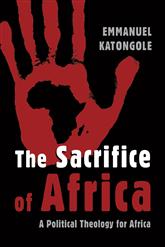I recently returned from a two-week seminar in Brazil with the Nagel Institute and Calvin College, where I spent time in Rio, Brasilia, and Manaus (Amazon) with a number of Brazilian scholars, as well as Christian college professors from the USA. Given this opportunity, I hope to be able to spend some time in future blogs sharing some of this experience.
 As in the United States, evangelicals can be found supporting a number of political causes across the spectrum. We had the opportunity to talk with evangelicals playing a key role in different political parties (social democrats, the labor party, communist groups), some involved in women’s movements, and others who were committed community activists. I was struck by how connected theology was with activism for these leaders, as well as my peers in the seminar.
As in the United States, evangelicals can be found supporting a number of political causes across the spectrum. We had the opportunity to talk with evangelicals playing a key role in different political parties (social democrats, the labor party, communist groups), some involved in women’s movements, and others who were committed community activists. I was struck by how connected theology was with activism for these leaders, as well as my peers in the seminar.
As a sociologist, I was also intrigued by the role of the sociologist within society, and within the church. Let’s just say the situation in Brazil is different than the United States. Sociology was seen as important and relevant for society (and the church). Several of the Christians I I met were sociologists and pastors, or sociologists and activists. Former President Lula de Silva was a sociologist. As I commented on last year (after attending CLADE V, the FTL conference in Costa Rica), evangelicals seem to use the social sciences in interaction with theology in more integrated ways than we do in the United States. Sociology shapes the way that they make sense of their context.
While in Brazil, I was reading Katongole’s book, The Sacrifice of Africa: A Political Theology for Africa (Eerdmans, 2010). Katongole is a priest from Uganda who has been integral with reconciliation programs at both Duke and Notre Dame. One thesis in The Sacrifice of Africa is that political institutions and most of the ‘modern’ states in Africa were created out of a foundation of violence, and violence is part of their core. He enunciates the theology that was (and is) at play:
that these [African lives] are not unique, precious sacred lives; these are Africans, mere bodies to be used, mere masses to be exploited. That this theological claim has come to be widely assumed is obvious from the casualness with which the wastage of African lives is accepted. For a new future to take shape in African, the wanton sacrificing of African lives would have to be confronted-no, interrupted—by a different story and its accompanying practices in which the sacredness, the preciousness, the unviability, and the dignity of African lives are foregrounded? (p.17)
For many Christians around the world, theology is recognized to be contextual. There is a recognition that theology must speak to the social issues and society in which it is embedded; to be silent is also a form of speech. One of the favorite songs of our Brazilian group was “Xote da Vitoria,” which speaks of the violence that will not win within society; of a God who will overcome, and of people who join with God in that march.
The words of Katongole continue to occupy my mind as I ask myself about what it means for US evangelicals (myself included) to think more critically about the context of our theologies. As I read and re-read his thoughts about the sacrificing of African lives and the casualness with which it is accepted by society, I cannot help but think about how our society continues to accept the loss of young African-American lives with casualness as well. While the Trayvon Martin case has garnered much attention, there are far too many cases where similarities exist. I leave for Florida tomorrow to visit my family, thinking about Trayvon and the case of Roy Middleton – an African-American man shot at his own car, who was apparently mistaken as a burglar by neighbors. I think of the case of Jordan Davis, a teen who was shot in his car at a gas station. As I sit here in Chicago, I reflect of the number of youth, many African-American, who die to gun violence, and the families who have lost multiple children to gun violence, and the lack of serious attention and outrage at this situation. I think of the Chicago Public Schools, which continues to be under resourced.
As a church, what does it mean to speak out on the devaluing of life that much of US society has accepted? In response to the Trayvon Martin verdict, as well as the recent Supreme Court verdict on the Voting Rights Act, Lisa Sharon Harper wrote an excellent blog at Sojourners about the ways we are moving backwards, legally, when it comes to civil rights for non-whites in our society. It is outrageous.
Both Jerry Park and George Yancey have offered some thoughts on this site about how we engage in talks about racism and recent events, especially within the church. We need to ask what these cases (and our responses) reveal about our underlying theologies about the value of all life. What theology exists in our own churches when we fail to proclaim (in word and action and presence) the dignity, the sacredness, and the preciousness of all lives—whether those in our neighborhood, in places throughout the United States, or countries across an ocean? What theology do I profess when I remain silent when violence takes life? What would it mean to truly proclaim that dignity?











